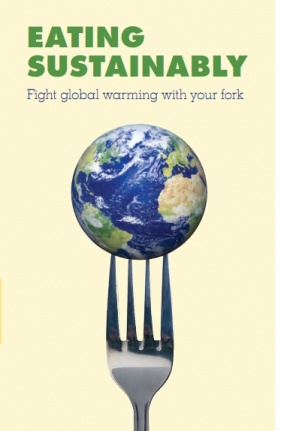- Like
- Digg
- Del
- Tumblr
- VKontakte
- Buffer
- Love This
- Odnoklassniki
- Meneame
- Blogger
- Amazon
- Yahoo Mail
- Gmail
- AOL
- Newsvine
- HackerNews
- Evernote
- MySpace
- Mail.ru
- Viadeo
- Line
- Comments
- Yummly
- SMS
- Viber
- Telegram
- Subscribe
- Skype
- Facebook Messenger
- Kakao
- LiveJournal
- Yammer
- Edgar
- Fintel
- Mix
- Instapaper
- Copy Link
Producing a veggie burger requires 93% fewer greenhouse gas (GHG) emissions than it does to produce a hamburger.
If everyone in the U.S. went meatless one day a week, it would be equivalent to taking 7.6 million cars off the road. These are among the many stats released last week in the “Meat Eater’s Guide to Climate Change and Health,” a peer-reviewed report by the Environmental Working Group (EWG) that examines the role diet plays in causing – and preventing – anthropogenic climate change.
The study set out to compare the carbon footprints of 20 protein-rich foods. Researchers calculated the emissions created throughout each product’s “lifecycle,” including through chemical fertilizers used to produce crops and animal feed, methane production, waste storage, processing, transportation, and disposal. They concluded that animal products — especially beef, cheese, pork, and lamb — produce exponentially more greenhouse gases than plant-based foods such as lentils, tomatoes, broccoli, tofu and nuts.
To curb GHG emissions, the report makes a straightforward recommendation: “Eat less meat and dairy.” It further urges the need to “enact stronger regulatory enforcement.”
The online study is filled with engaging graphics, a quiz, and even a pledge to eat less meat, making it perfect for sharing with your meat-eating friends. Consider it the latest in the growing body of literature indicating that a compassionate vegan diet is the best way to prevent animal suffering, stay healthy, and protect the Earth.
TAKE ACTION: You can encourage others to help fight global warming — and animal abuse — with their fork by passing out copies of COK’s popular “Eating Sustainably” brochure.

